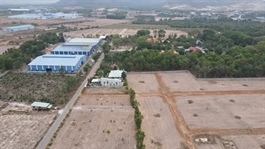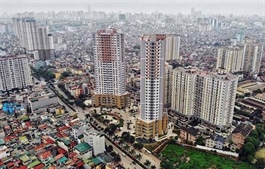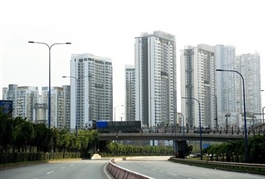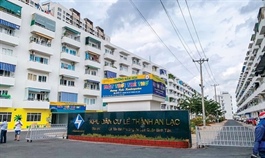Reforms essential for industrial M&As
Reforms essential for industrial M&As
The industrial property market in 2024 in terms of mergers and acquisitions faces optimism this year, with new rules likely to boost progress.

Nguyen Van Hai, legal head at the Investment Promotion and Connection Agency under the Vietnam Mergers and Acquisitions Community (M&A Vietnam) met with his potential investors on January 24 to discuss new industrial property M&As after the amended Land Land was announced.
“Many of them have been waiting for this moment for a long time. This law will reinforce the legal framework for industrial property M&A and increase investor confidence, including in industrial property,” he said.
“The M&A community is eager to make moves after the news. Previously, we worked with a number of businesses and investors who said that they will make next steps in industrial assets via M&As when the amended Land Law was passed.”
He went on to say that other laws and regulations like the amended Law on Real Estate Business would support the development of the market, as well as M&A activities in the industrial property segment this year. M&A Vietnam now has more than 20,000 members globally.
Although the property market last year saw the number of newly established companies decrease by 45 per cent from 2022, and the number of bankruptcies increased, the industrial property M&A segment was a highlight.
Vu Thi Thu Ha, director of law firm ATS, said that more than 1,000 M&A transactions were completed in the segment last year with a value of more than $3.1 billion. “This figure can give us confidence that 2024 will have certain improvements,” Ha said.
Le Dinh Chung, deputy general director of property developer SGO Group, added that Vietnam had signed comprehensive cooperation agreements with many countries, which would lead to an increase in foreign investment in the country and growing demands in industrial property.
“This will be a year of stronger development in this segment. Many players from Japan, South Korea, Singapore, Taiwan, and Hong Kong are focusing on investing,” he noted. “This will continue to be a trend in the years to come. The adoption of the land law will be a supporting factor to the development of the segment. However, to enable its effectiveness, enforcement should be paid due attention to ensure consistency.”
Dr. Nguyen Van Tuan, partner at LNT & Partners, said that real estate M&As will be affected by a number of laws that will take effect in 2025.
“The Law on Real Estate Business partly solves previous legal problems. For example, it has a new regulation, which states that parties in M&A transactions can transfer real estate projects without fulfilling financial obligations. This is an open rule,” he said. “It also increases transparency in real estate transactions.”
Despite the improvements, the enforcement of laws remains a concern among businesses and experts.
Vu Thi Thu Ha explained that she faced many challenges because of different understanding and applications among cities, provinces, and agencies.
“In many cases, it feels like I am hitting my head against a brick wall because of this different understanding and performance. Some cases are simply stuck. New laws cannot support the market much if they are not enforced properly,” she said.
Jean-Jacques Bouflet, vice chairman in charge of advocacy at the European Chamber of Commerce in Vietnam said it endorses legal reforms to promote investments in condotels, hometels, and officetels. He also suggested including clear guidelines on land use terms and the granting of land use right certificates, which may augment the interest of foreign investors to put their money into Vietnamese real estate.
“These reforms, among others, are essential to boost the real estate market and contribute to Vietnam’s social security, continuous growth, and increasing sustainability,” Bouflet said. “Additionally, to further the protection of foreign investors’ rights, we recommend expediting the issuance of certificates in practice. This also pertains to the publication of a foreign ownership prohibited projects list that will increase the transparency of the Vietnamese real estate market for foreign investors.”
























